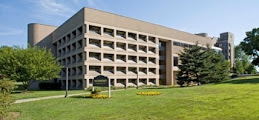This post is to follow up on our previous two posts (by Cynthia) about
Lexis and
Westlaw summer access. This time, let's give it a summary and complete the list by adding
Loislaw.
LexisAccess to Lexis is limited beginning June 1 unless you
register for summer access. Summer access is limited to academic purposes, which include:
- class preparation and assignments
- research associated with moot court or law review/law journal
- research associated with pursuing a grant or scholarship
- service as a research assistant to a professor (either paid or unpaid)
- an unpaid internship, externship or clinic position for school credit
- clerkship for credit
- bar review
LoislawLoislaw provides one low, all inclusive flat rate; no hidden charges for hyperlinking, downloading or printing; and free training and 24/7 technical support. Loislaw does not pose any summer access restrictions on students or non-students.
If you are
not graduating this summer, as a student
click here to get the authorization code, so you can register for an account with Loislaw, if you have not already done so. The password is listed on TWEN, under Law Library on Twen - Passwords.
If you are graduating and will no longer be a student, Loislaw is also available for free through the
New York State Bar Association website if you are a member.
WestlawFor those who are
not graduating this summer, if you are participating in what qualifies as an educational program, you may
extend your Westlaw password for the summer. Educational programs qualifies as:
- You are taking summer law school classes
- You are on law review
- You are working on a project for a professor
- You are participating in moot court
- You are doing an unpaid non-profit public interest internship/externship or pro bono work required for graduation.
Important - the following is NOT considered an educational purpose and are therefore prohibited:
- Working for law firms, government organizations, entities serving the District of Columbia, corporations, paid or for-profit internships, externships, public interest, non-graduation required pro bono
- Personal use, practice and preparation for the bar exam.
Contact us with any further questions!



















